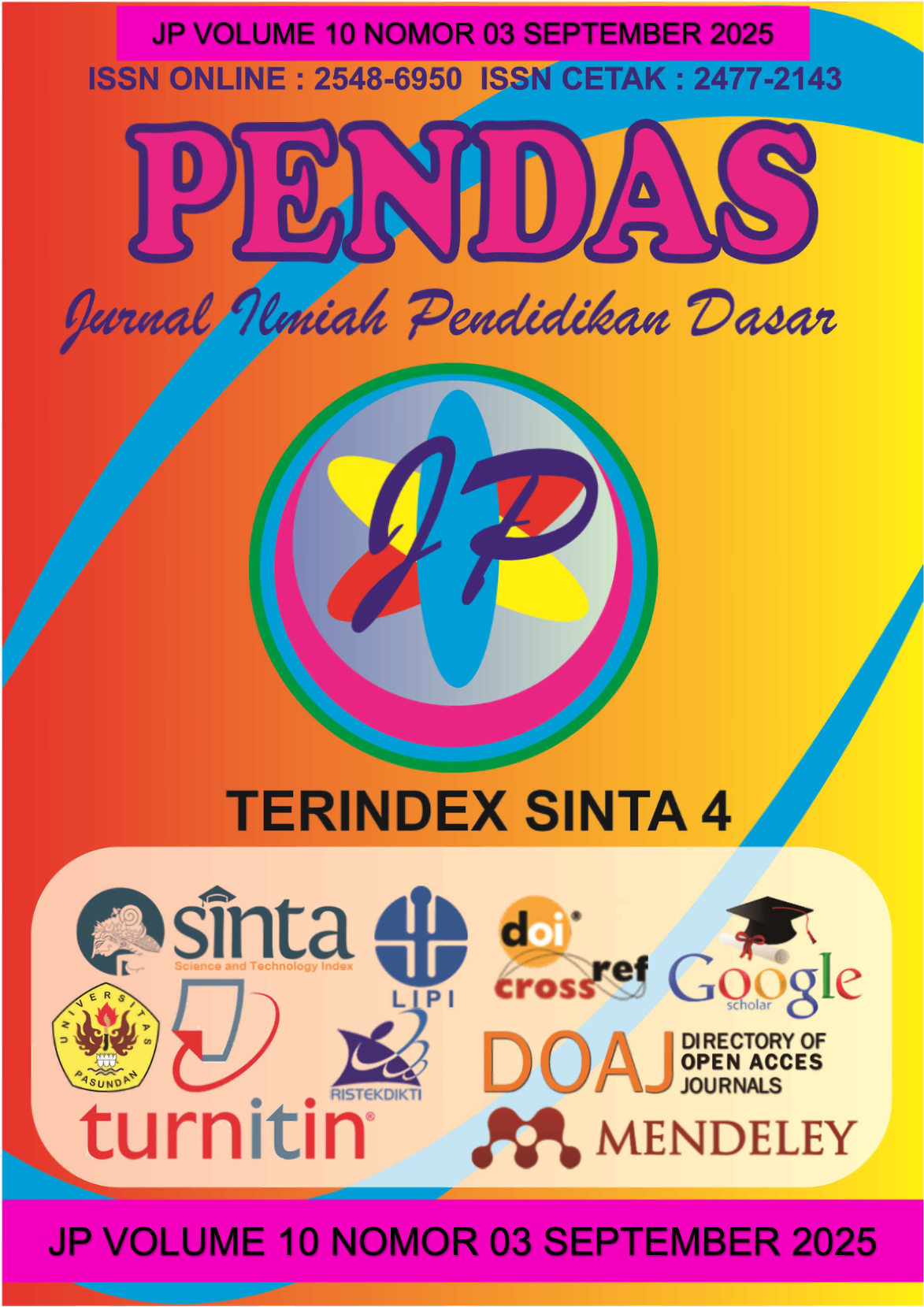PERAN KEPEMIMPINAN PENDIDIKAN DI YAYASAN MIMBAR HUFFAZH KARAWANG
DOI:
https://doi.org/10.23969/jp.v10i03.32065Keywords:
educational leadership, transformational leadership, situational leadership, communication strategy, education managementAbstract
This study explores the function and role of school leadership in mobilizing institutional life and addressing organizational challenges at Mimbar Huffazh Foundation, Karawang. Using a qualitative descriptive method, data were collected through in-depth interviews and analyzed thematically. Findings reveal that the principal plays a strategic and dynamic leadership role, blending transformational and situational approaches that align with the unique cultural and professional context of the school. The leadership practice goes beyond administrative tasks by emphasizing vision-building, adaptive communication, and fostering professional growth. Open dialogue, relational trust, and participatory decision-making become central to how the principal navigates problems and drives continuous improvement. Moreover, teacher development programs are designed based on individual needs, reflecting a human-centered approach to school management. This study concludes that effective school leadership requires not only managerial competence but also the ability to inspire, adapt, and collaborate meaningfully. Future research is recommended to compare leadership practices across various Islamic educational institutions using mixed methods approaches for broader insight.Downloads
References
Namun, karena penelitian ini
dilakukan pada satu yayasan dengan
pendekatan kualitatif dan konteks
lokal tertentu, disarankan untuk
melakukan penelitian lanjutan dengan
jangkauan yang lebih luas, baik
secara geografis maupun
institusional. Studi komparatif antar
sekolah dengan karakteristik yang
berbeda atau pendekatan kuantitatif
untuk mengukur efektivitas gaya
kepemimpinan dalam meningkatkan
kinerja guru dan mutu sekolah juga
akan memperkaya pemahaman dan
aplikasi teori kepemimpinan dalam
konteks pendidikan di Indonesia.
DAFTAR PUSTAKA
Arofah, S. N., Supeni, N., & Maspufah,
H. (2024). Pengaruh Gaya
Kepemimpinan, Lingkungan
Kerja, Budaya Organisasi Dan
Motivasi Kerja Terhadap Kinerja
Guru Di Madrasah Tsanawiyah
Negeri 2 Jember. JMBI : Jurnal
Manajemen Bisnis Dan
Informatika, 4(2), 193–208.
https://doi.org/10.31967/prodima
najemen.v4i2.993
Azzahir, S. Z. A., Baruno, Y. H. E.,
Mustatho, & Al-Akbar, N. (2025).
THE ROLE OF PRINCIPAL
LEADERSHIP IN IMPROVING
THE QUALITY OF TEACHING
PERSONNEL. Leadership:
Jurnal Mahasiswa Manajemen
Pendidikan Islam, 6, 207–217.
https://doi.org/https://doi.org/10.3
2478/leadership.v6i2.2877
Citriadin, Y., Utama, W., & Nurani, B.
(2024). Kepemimpinan
partisipatif kepala sekolah dalam
meningkatkan kinerja guru di MTs
Al-Mahmud Aik Ampat An-
Nadhlah: Jurnal Pendidikan
Islam, 4, 504–512.
Efendi, F., Sunaryo, H., & Harijanto, D.
(2023). Efektivitas
Kepemimpinan Transformasional
Kepala Sekolah melalui
Komitmen Kerja terhadap Kinerja
Guru Merdeka Belajar. Jurnal
Akuntabilitas Manajemen
Pendidikan, 11(2), 19–32.
https://doi.org/10.21831/jamp.v1
1i2.60605
Fauzi, A., Wasliman, I., & Dianawati,
E. (2023). Strategi Kepala
Madrasah Dalam Meningkatkan
Kinerja Guru Di MA Muslimat NU
Palangka Raya. Wahana
Didaktika : Jurnal Ilmu
Downloads
Published
Issue
Section
License
Copyright (c) 2025 Pendas : Jurnal Ilmiah Pendidikan Dasar

This work is licensed under a Creative Commons Attribution 4.0 International License.



















